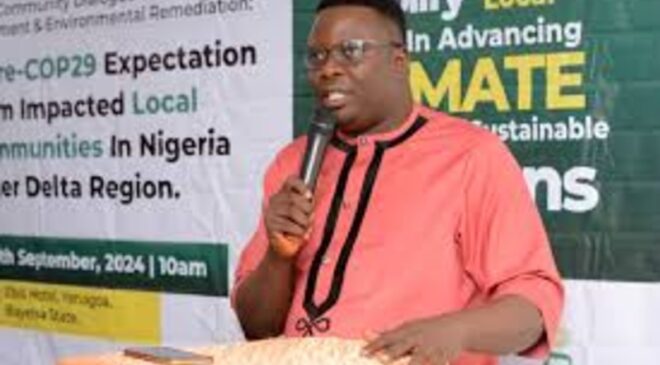
LAGOS/Nigeria: In a bold move to safeguard Nigeria’s democratic process from the growing impact of climate change, Connected Advocacy, a youth-led civil society organisation focused on environmental justice and governance reform, has unveiled a groundbreaking proposal aimed at integrating climate resilience into the nation’s electoral system.
The initiative, titled “Strengthening Nigeria’s Democracy through Electoral Climate Reform”, introduces the National Electoral Climate Preparedness Protocol (NECPP), a first-of-its-kind framework designed to ensure that elections in Nigeria remain credible, inclusive, and uninterrupted in the face of climate-related disruptions such as flooding, extreme weather events, and population displacement.
Executive Secretary of Connected Advocacy, Mr. Israel Orekha, disclosed the proposal in a statement issued to journalists on Friday in Lagos. He warned that recent elections in Nigeria have already demonstrated how climate risks can compromise logistics, suppress voter turnout, and undermine public trust in democratic institutions.
“We can no longer treat environmental hazards as separate from democratic integrity. This reform is essential to protect the voices of millions,” Orekha said.
The NECPP outlines several strategic interventions, including integrating climate risk assessments into electoral planning, providing emergency voting mechanisms in disaster-hit areas, securing digital voter registries with off-site backups, and fostering institutional collaboration between agencies such as INEC, NEMA, NiMET, the National Council on Climate Change, and security agencies.
Additionally, the proposal emphasizes the need for inclusive civic education campaigns, especially in vulnerable communities, delivered in local languages to enhance awareness and participation.
According to Orekha, the proposal maps out a phased implementation strategy—beginning with stakeholder consultations and pilot testing in high-risk states, leading to nationwide rollout and full institutionalisation over a three-year period.
He called on the Independent National Electoral Commission (INEC), the National Assembly, development partners, and civil society groups to support the initiative and place Nigeria at the forefront of climate-adaptive electoral innovation in Africa.
“This is about future-proofing our democracy. Climate change is not a distant threat—it’s here, and it’s already affecting how we vote. Nigeria must lead in building systems that protect every citizen’s right to participate,” Orekha asserted.
